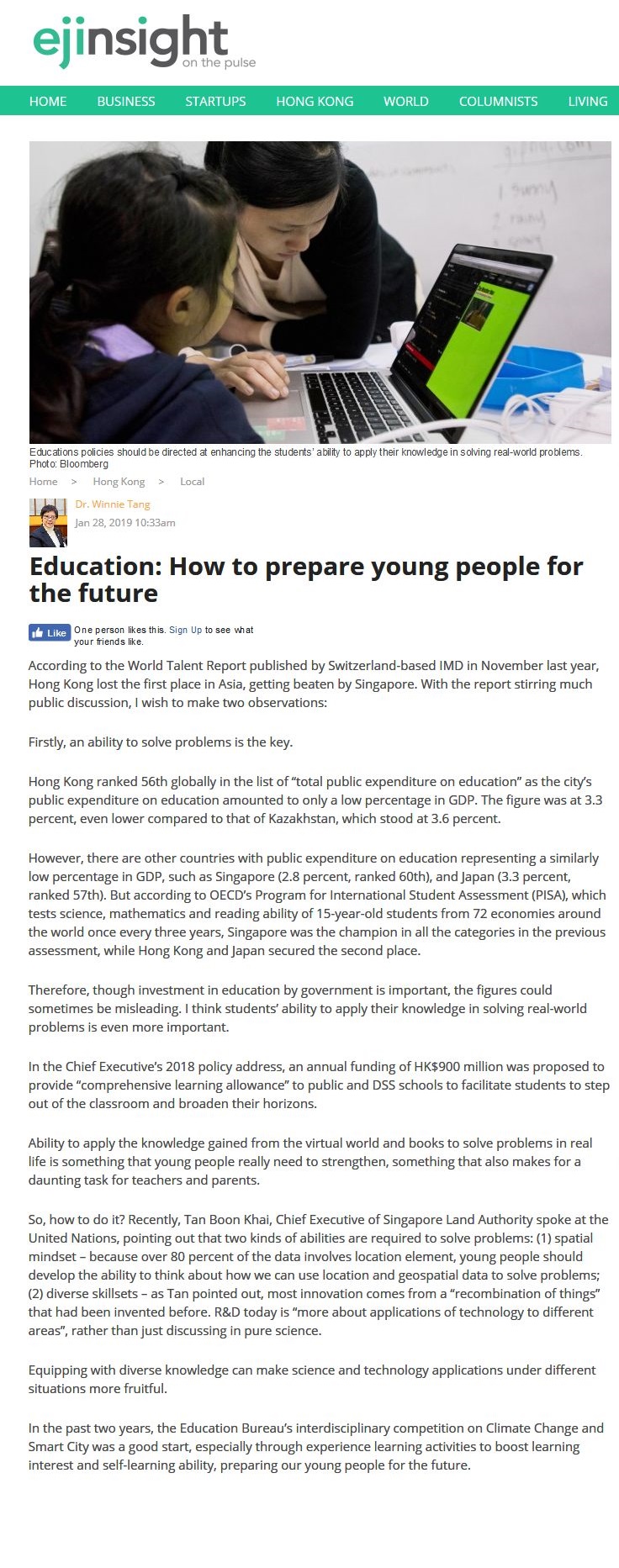網上版請按此

Education: How to prepare young people for the future
According to the World Talent Report published by Switzerland-based IMD in November last year, Hong Kong lost the first place in Asia, getting beaten by Singapore. With the report stirring much public discussion, I wish to make two observations:
Firstly, an ability to solve problems is the key.
Hong Kong ranked 56th globally in the list of "total public expenditure on education" as the city's public expenditure on education amounted to only a low percentage in GDP. The figure was at 3.3 percent, even lower compared to that of Kazakhstan, which stood at 3.6 percent.
However, there are other countries with public expenditure on education representing a similarly low percentage in GDP, such as Singapore (2.8 percent, ranked 60th), and Japan (3.3 percent, ranked 57th). But according to OECD's Program for International Student Assessment (PISA), which tests science, mathematics and reading ability of 15-year-old students from 72 economies around the world once every three years, Singapore was the champion in all the categories in the previous assessment, while Hong Kong and Japan secured the second place.
Therefore, though investment in education by government is important, the figures could sometimes be misleading. I think students' ability to apply their knowledge in solving real-world problems is even more important.
In the Chief Executive's 2018 policy address, an annual funding of HK$900 million was proposed to provide "comprehensive learning allowance" to public and DSS schools to facilitate students to step out of the classroom and broaden their horizons.
Ability to apply the knowledge gained from the virtual world and books to solve problems in real life is something that young people really need to strengthen, something that also makes for a daunting task for teachers and parents.
So, how to do it? Recently, Tan Boon Khai, Chief Executive of Singapore Land Authority spoke at the United Nations, pointing out that two kinds of abilities are required to solve problems: (1) spatial mindset – because over 80 percent of the data involves location element, young people should develop the ability to think about how we can use location and geospatial data to solve problems; (2) diverse skillsets – as Tan pointed out, most innovation comes from a "recombination of things" that had been invented before. R&D today is "more about applications of technology to different areas", rather than just discussing in pure science.
Equipping with diverse knowledge can make science and technology applications under different situations more fruitful.
In the past two years, the Education Bureau's interdisciplinary competition on Climate Change and Smart City was a good start, especially through experience learning activities to boost learning interest and self-learning ability, preparing our young people for the future.
Dr. Winnie Tang
Adjunct Professor, Department of Computer Science, Faculty of Engineering and Faculty of Architecture, The University of Hong Kong